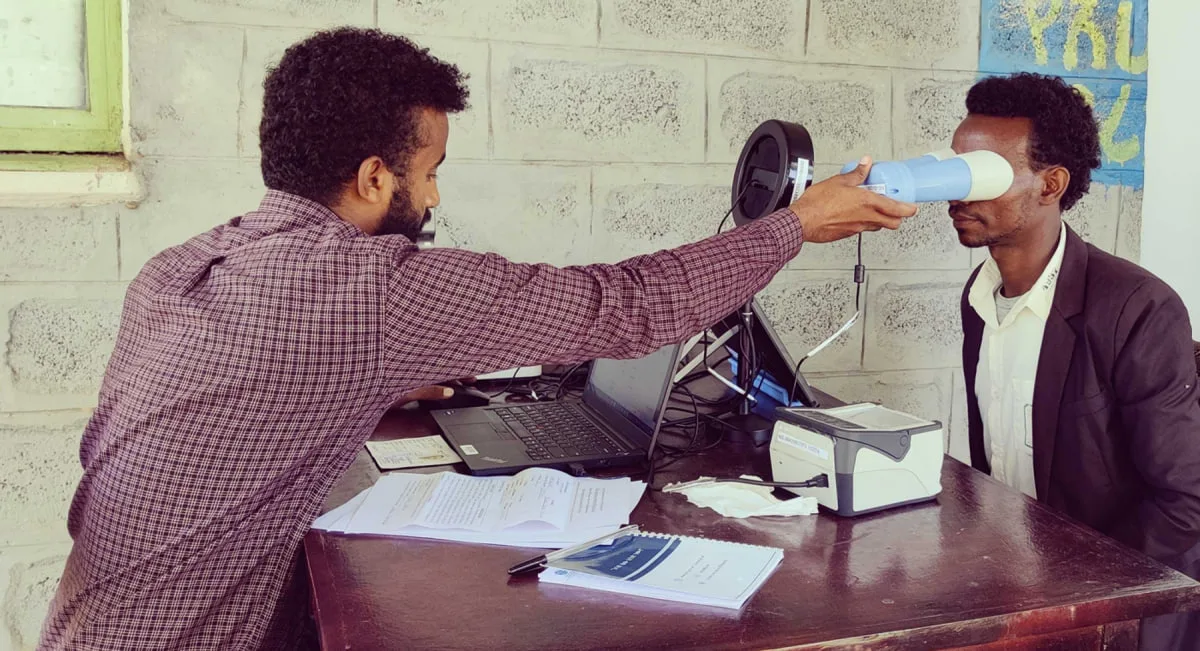Ethiopia is preparing to enforce a mandatory national digital ID requirement to access select crucial government services. With nationwide implementation to be carried out in phases across government agencies, the move signals a paradigm shift where citizens without digital IDs will find themselves ineligible for these services.
Yodahe Zemichael, the Executive Director of Ethiopia’s National ID Program, shared in an interview with Shega that integrating some essential public services into the digital ID framework has been the long-term vision of the program.
“We plan to integrate all services into the digital ID. This has been the vision of the proclamation and why we are allocating resources,” stated Yodahe.
In March 2023, lawmakers approved the Digital Identity Proclamation. While the proclamation does not mandate citizens to register for IDs, it grants institutions the right to deny services. “Institutions can legally deny service if their customers don’t have a digital ID,” stated Yodahe.
Yodahe highlights the significance of digital ID as a system to establish an identity trail, a mechanism for creating social capital, and ensuring accountability, stating, “There would be no development without trust.” In November 2023, Prime Minister Abiy Ahmed, while addressing government officials, stated, “A person without a digital ID is like a car without a license plate.”
The government aims to biometrically register all 90 million eligible people. The digital biometric ID includes an individual’s name, gender, iris scan, and fingerprints. To date, around four million individuals have registered for IDs. However, the project is behind its initial goal of registering all eligible adults by 2025. Now the plan has been pushed to 2028.
Last month, the national ID program gained a significant boost after receiving $350 million from the World Bank.
The National ID Program currently has about 500 biometric registration kits distributed across Ethiopia. Simultaneously, it is granting licenses to various institutions to facilitate ID registrations.
“For instance, we are collaborating with banks, allocating between 40 and 50 birr for each individual they register,” Yodahe told Shega.
In October 2023, the Ethiopian bankers’ lobby group issued a bid to invite suppliers to provide it with 6,000 kits.
Yodahe revealed that government institutions such as the Ministry of Justice, the Documents Authentication and Registration Service, and the Ministry of Revenue are implementing the requirement early.
The Ministry of Justice, for example, released a public statement indicating preparations to exclusively offer services through the national digital ID. The State Minister of Justice, Belayhun Yerga, advised service requestors to be aware of these changes and make necessary preparations.
Habtamu Hailemeskel, a consultant and attorney at law specializing in business and investment laws, views the development positively.
“Government institutions already require some form of identification to provide services. Now, we are just replacing this with a digital ID and a central registry,” he notes.
However, he raises concerns about the aggressive nature of the registration process, emphasizing the uncertainty surrounding personal data protection.
“The personal data protection law has not been approved yet. Moreover, the draft law gives control over data privacy to another government agency, the Ethiopian Communication Authority (ECA).”
“Such authority should be given to an independent body that is accountable to the parliament to safeguard the data of users,” Habtamu told Shega.
________
The article has been revised to clarify that not all government services will necessitate the use of digital ID; rather, specific sectors will require its application.







